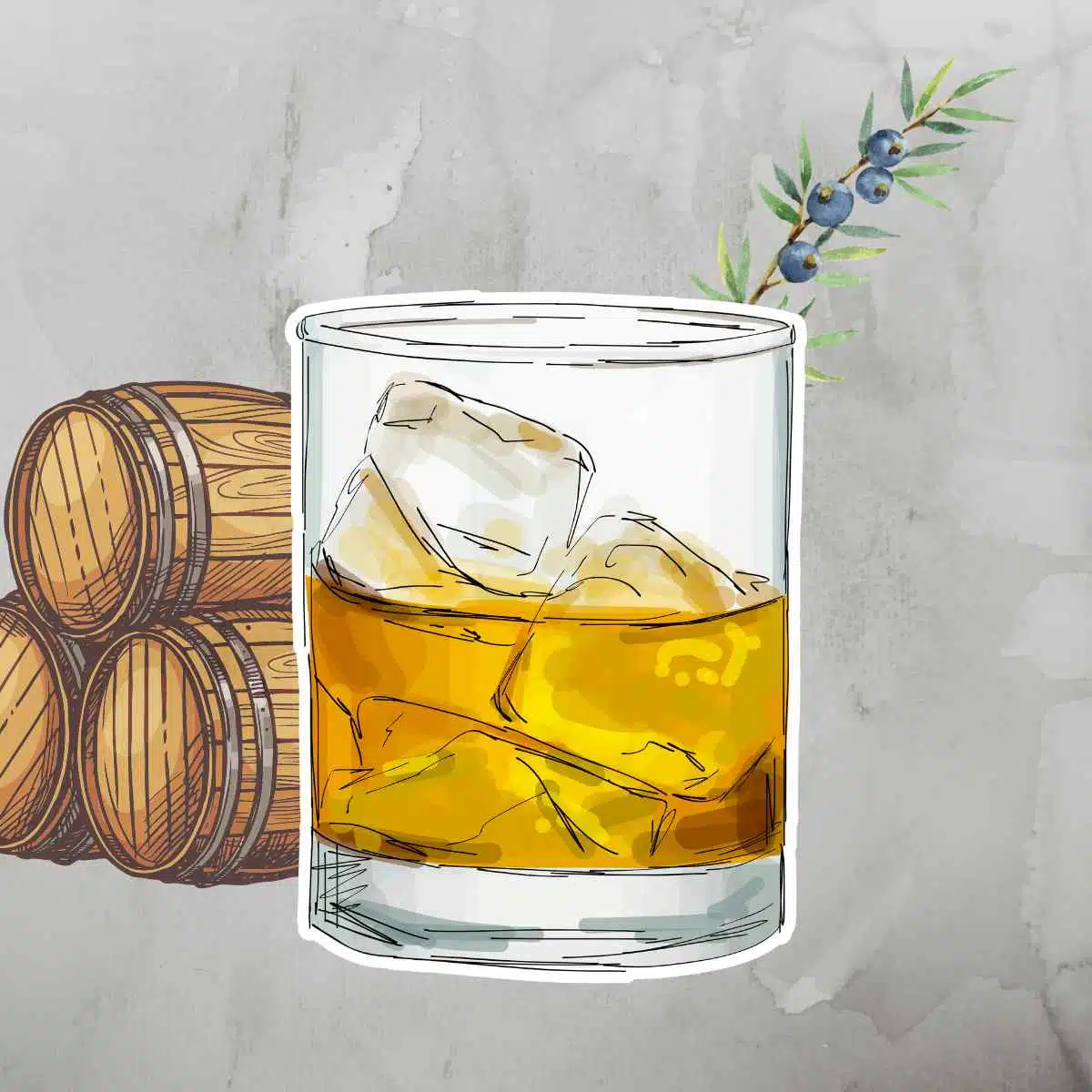Barrel Aged Gins, often promoted as Reserve Gin, are not a new invention. In the 19th century, people had to store Gin in large wooden barrels for easy transportation. Glass or plastic was either too expensive or unavailable because it had not yet been invented. So this process was mandatory and less an intentional way to refine the Gin.
The first time distillers aged their Gin on purpose was most likely during the 1930s. The below Gin advertisement from Booth's Gin dates back to 1934 and states: "Aged for years in casks, after it is triple distilled by one of the world's oldest and most famous distilleries."
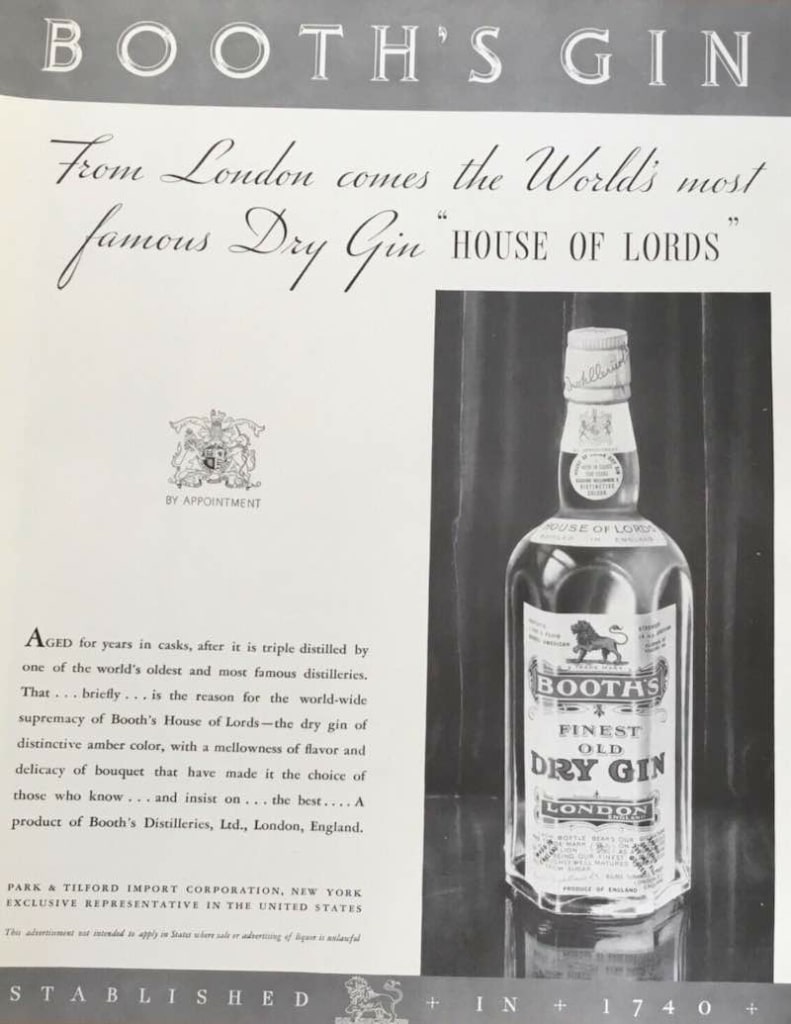
Another example of early intentional aging is Seagram's Gin which is still known for its slightly yellow touch of color from aging in ex-Whiskey barrels. However, in contrast to the current trend Seagram's reduced the time of aging in barrels to a minimum nowadays.
But before we dive deeper into the topic and discuss how barrel aging will affect the taste and which kind of barrels are used for aging, I want to explain in more detail what Barrel Aged Gin means and which other terms you can use for it.
What is Barrel Aged Gin?
Barrel Aged Gin is a category of Gin of yellow color aged in wooden casks or barrels after distillation. The longer a Gin matures in these wooden vessels, the more intense the yellow hue becomes. The color scale ranges from a barely noticeable yellow tint to deep yellow or golden/brownish shade.
These aged Gins are a category of their own known by many different names like Barrel Aged Gin, Aged Gin, Barrel Gin, Reserve Gin, Barrel Rested Gin, Rested Gin, and more.
The modern way of aging Gin in wooden barrels started with a few experiments in the late 2000s. A decade later, in the late 2010s, many distillers began to use a larger variety of barrels to impart flavors from specific barrels into their Gin.
Which barrels are used for aging Gin?
In the past, ex-Whiskey barrels were typically used to age Gin. Today, there's more variety. Some brands use fresh and unused barrels to develop and smoothen the flavors of the Gin itself. Other brands started to fine-tune their choice of barrels to impart specific flavors into their spirit.
New barrels can be made from various wood, although the classic type is oak, predominantly American and European. But also rare types like ash, mulberry, cherry, acacia, and chestnut are used to age Gin.
Used barrels are typically former Bourbon, Rye, wine, port, or Rum barrels, sometimes even Tequila casks. Gin that's aged in such barrels benefits from the flavors of the spirit previously stored in them. Barrels that held sweeter liquids like Port or Sherry will also transport these sweet notes into the Gin.
How does Aged Gin taste?
Aged Gin will taste very different from ordinary un-aged Gin. It has a slightly different texture and is smoother, richer, and spicier in taste - loosely comparable to other aged spirits like Whiskey than with other Gin.
Again, the individual taste highly depends on the barrel used for aging. One of the most common barrel types, fresh American oak, will bring a soft and sweet taste of vanilla and caramel to the Gin.
In contrast, European oak from Spain, Portugal, or France will each have its own unique properties. But overall, they're spicier with more pronounced pepper notes paired with vanilla.
Gin aged in Port, Sherry, or wine casks will transport a hint of wine flavor into the spirit, making the flavor profile even more complex.
How to serve
Barrel Aged Gins are a separate sub-category of Gin for a reason. Used in today's most influential Gin drink, the Gin and Tonic, the matured spicy flavor doesn't really work. At least, I didn't find a combination yet that actually satisfied my taste buds.
But having said that, aged Gins are actually quite versatile if you take their unique taste into account. You can use it as a replacement for Whiskey in many classic recipes like an Old Fashioned. It's also great in a Gin Sour cocktail, instead of a classic London Dry, or as an unusual base in a Negroni. The latter is especially nice when made with Cynar.
To fully appreciate the taste of aged Gin, it often comes neat or with honey syrup and orange peel. If you want to pair it with a mixer, use ginger beer or ginger ale instead of the classic tonic.
Aged Gins to try
There are countless bottles of amazing Aged Gins available right now, and we're covering that in a separate article. However, here's a short and sweet list of excellent Barrel Aged Gins you should have tried.
Citadelle Reserve
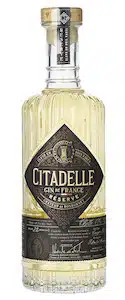
Citadelle has a whole range of barrel-aged Gins and all of them are quite exciting. I recommend trying their Citadelle Réserve Gin first as this is the most complex one of them. They age their distilled Gin in five different barrels: Acacia, mulberry, cherry, chestnut, and French oak. After that, they blend the Gins and age them again in an oak barrel before it's bottled.
Four Pillars Sherry cask Gin
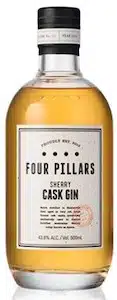
This Gin is aged in an ex-Sherry cask using the Solera system. This system is typically used for aging Rum and is a rather complex way of constant aging and blending. Before bottling, just a bit of Amontillado Sherry is added to each bottle for an extra kick of Sherry flavor.
Blackwater Juniper wood Gin
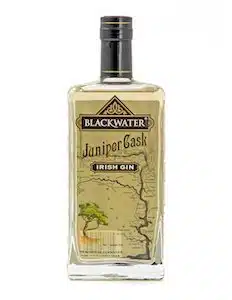
I love Blackwater Gin since first trying their Blackwater No.5 Gin when in Ireland. Their take on aged Gin is based on juniper wood barrels which lend the resulting Gin interesting notes of cedar and spices.

